Why Use Audiobooks with Dyslexic Learners?
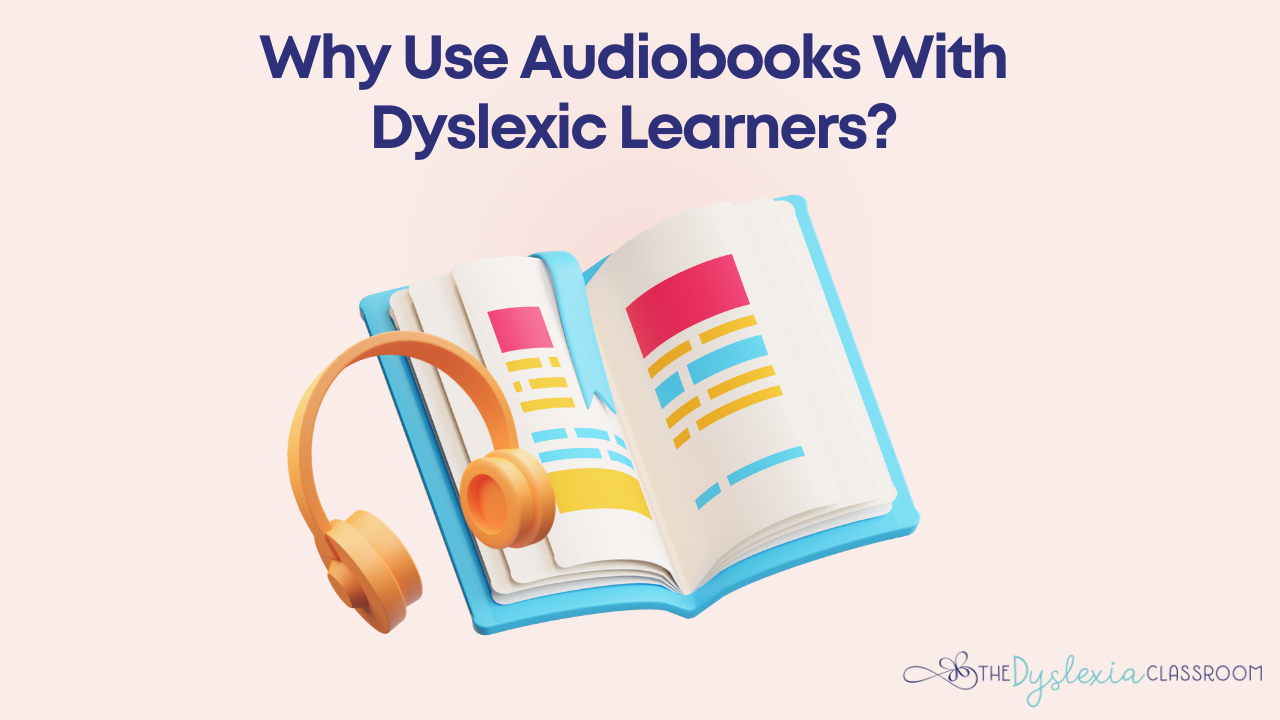
The topic of audiobooks comes up often and is an accommodation that I recommend for all of my students. Audiobooks have gained popularity among the general population, with 1.3 billion dollars in 2020. While audiobooks are an excellent tool for anyone, they provide additional benefits for those with dyslexia or other learning differences. We know the importance of becoming literate in our society, but how do audiobooks weigh into our children's reading goals? Let's dig into some of the benefits and possible obstacles.
Benefits of Audiobooks
Audiobooks provide access to grade-level and higher-level text
Why is this important? We need to provide students with the tools to access the curriculum. Audiobooks provide this bridge. Students are given audiobook access for curriculum reading for multiple reasons.
Audiobooks level the playing field
Audiobooks are an accommodation that helps ensure our dyslexic learners can access the curriculum. It levels the playing field as students work to close the reading gap. If students who are still working on decoding skills only read text on their independent level, they can miss out on higher level vocabulary and context and fall further behind. This is referred to as the Matthew Effect, the idea that the rich get richer and the poor get poorer. Students who are not yet strong readers read less than their peers who are stronger readers, which increases the gap in language development, reading vocabulary, background knowledge, and comprehension. Audiobooks allow students to access the same books as strong readers. You can listen to my podcast episode about the Matthew Effect here.
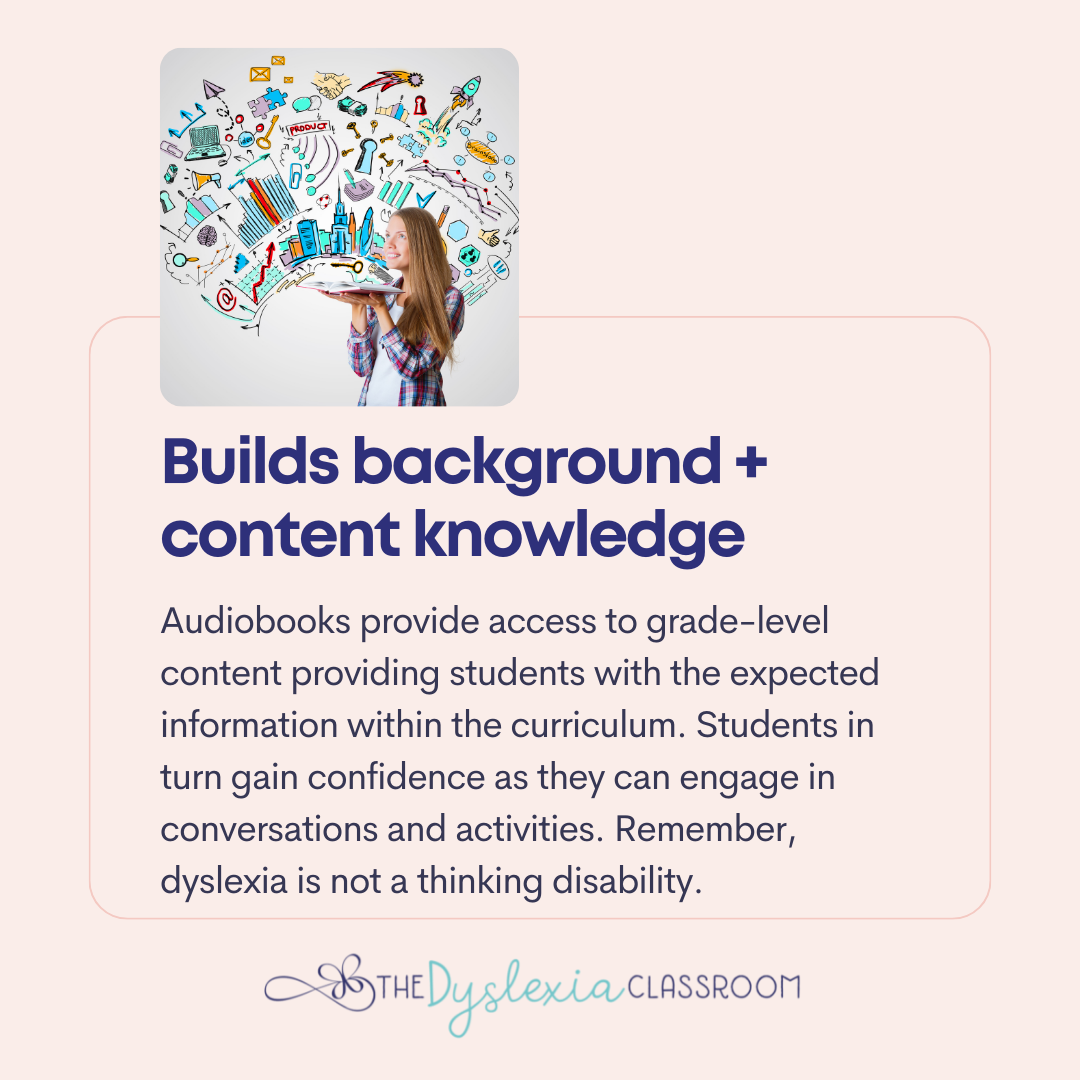
Audiobooks build background and content knowledge
Audiobooks provide access to grade-level content providing students with the expected information within the curriculum. Students, in turn, gain confidence as they can engage in conversations and activities. Remember, dyslexia is not a thinking disability.
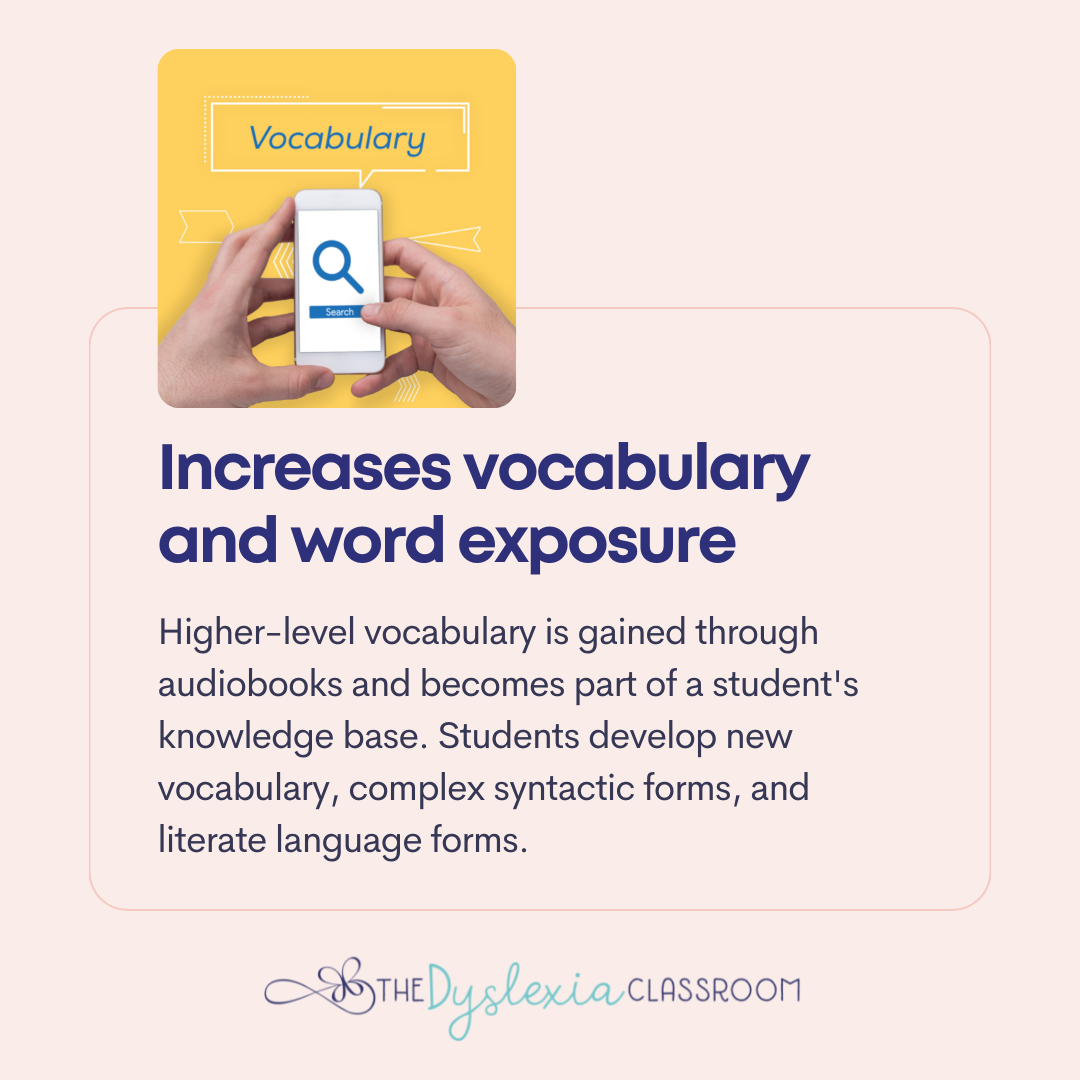
Audiobooks increase vocabulary and word exposure
Higher-level vocabulary is gained through audiobooks and becomes part of a student's knowledge base. Students develop new vocabulary, complex syntactic forms, and literate language forms. In addition, when students hear new words, they can connect that word's pronunciation to the orthographic or written representation and meaning, increasing their ability to read that word later.
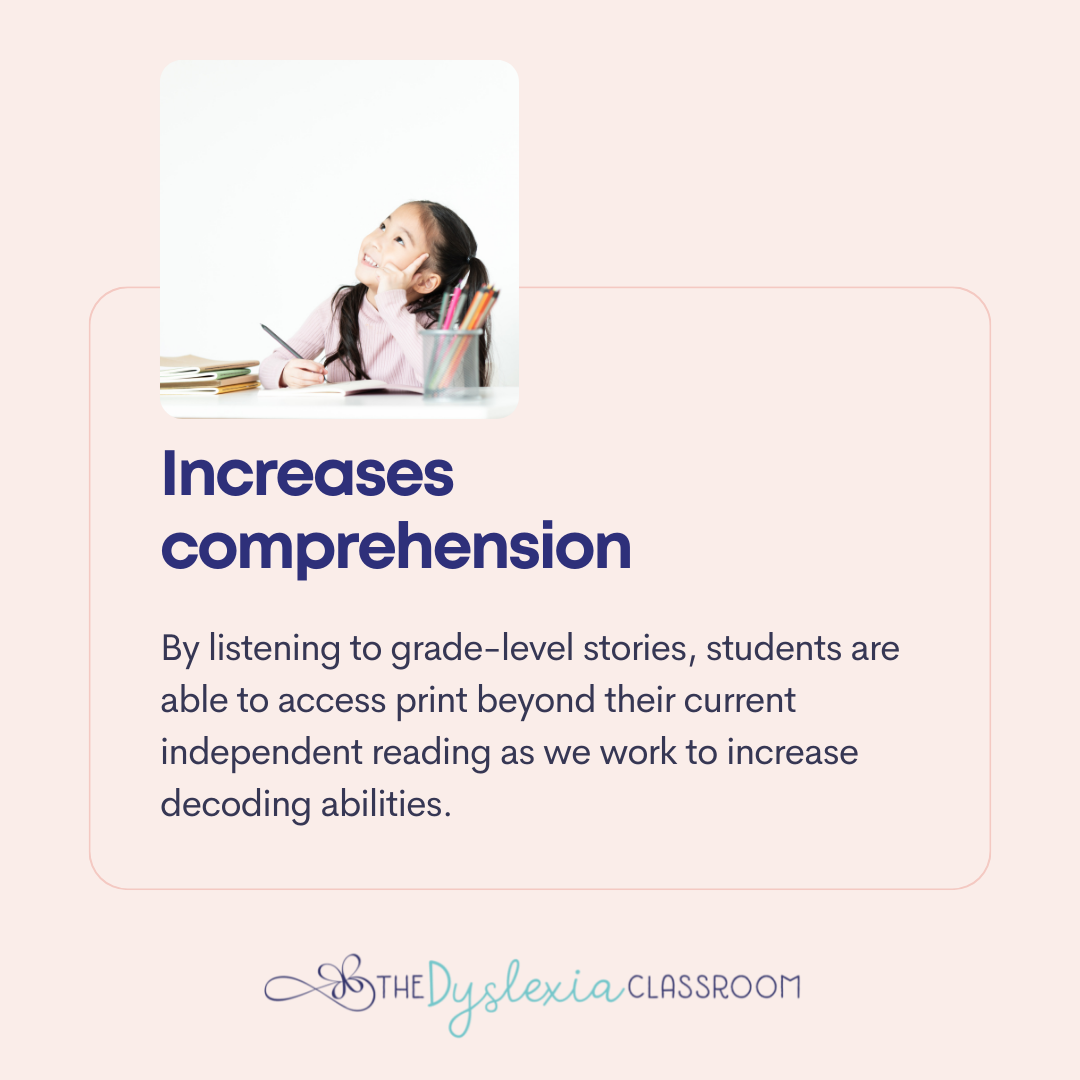
The use of audiobooks increases comprehension
By listening to grade-level stories, students can access print beyond their current independent reading as we work to improve decoding abilities. Audiobooks provide a bridge between our independent word reading and our understanding of the text. In addition, the cognitive load and the workload during school can become overwhelming, impacting our reading. Using audiobooks releases that stress and allows the mental workspace to be used to think about the content of the text.
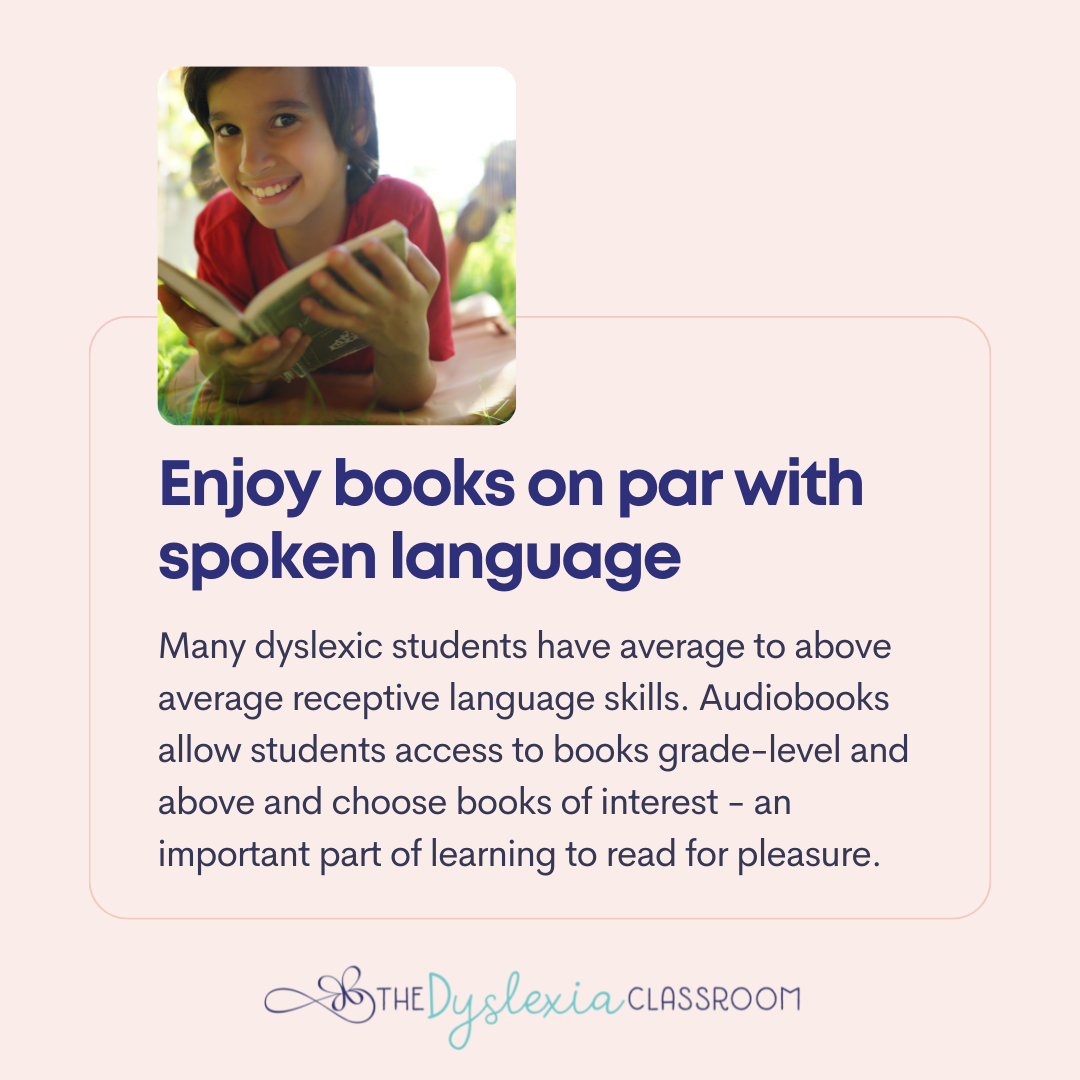
Allows students to enjoy books on par with their spoken language
Many dyslexic students have average to above average receptive language skills. Audiobooks allow students access to grade-level and above books that are often better aligned with their language skills. In addition, students can choose books of interest - an important part of learning to read for pleasure.
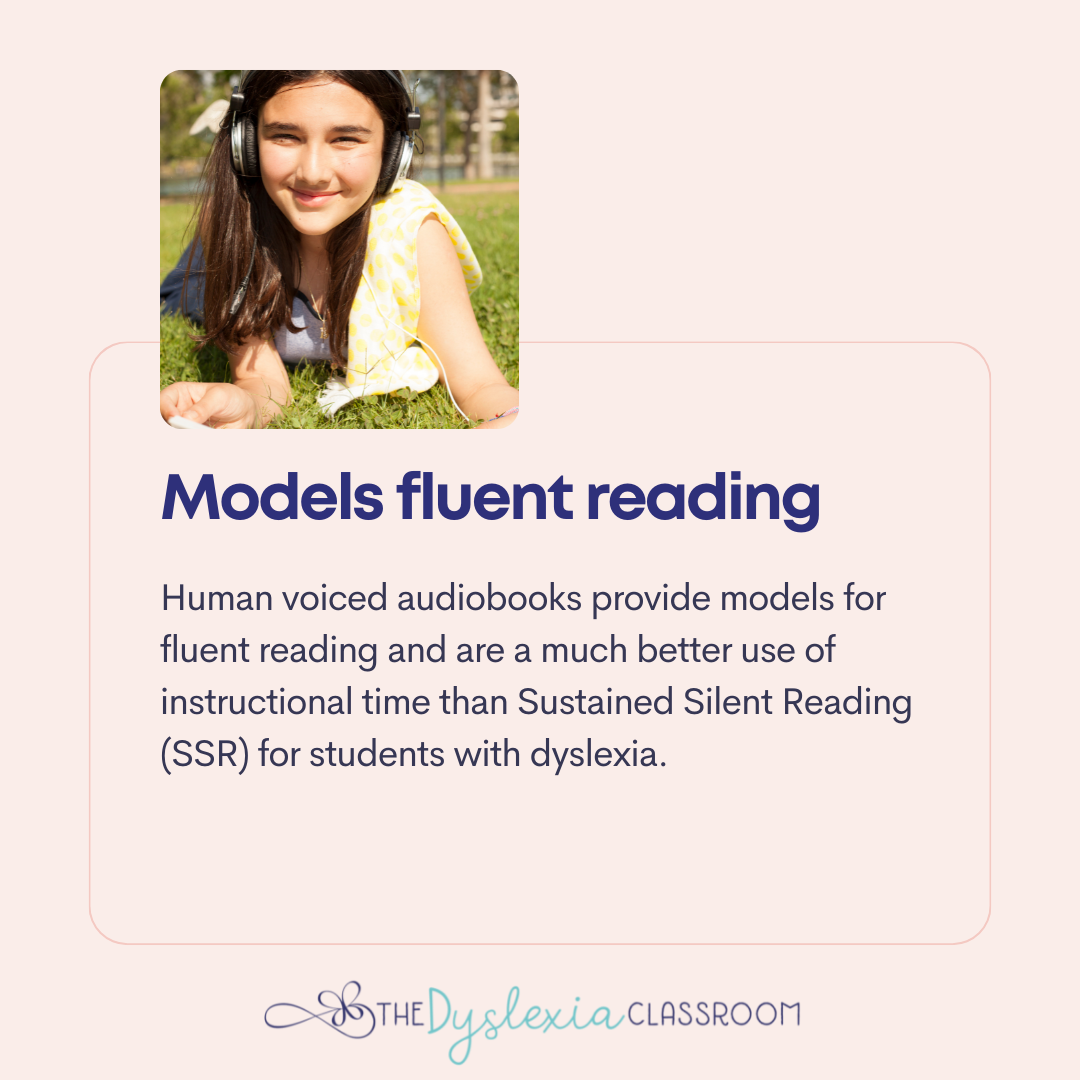
Models fluent reading
Human-voiced audiobooks provide models for fluent reading and are a much better use of instructional time than Sustained Silent Reading (SSR) for students with dyslexia. In addition, audiobooks support students in keeping up with the reading assignments, especially as they move up the grades. Textbooks and curriculum books are often available in audiobook format and prove helpful for students of all ages.
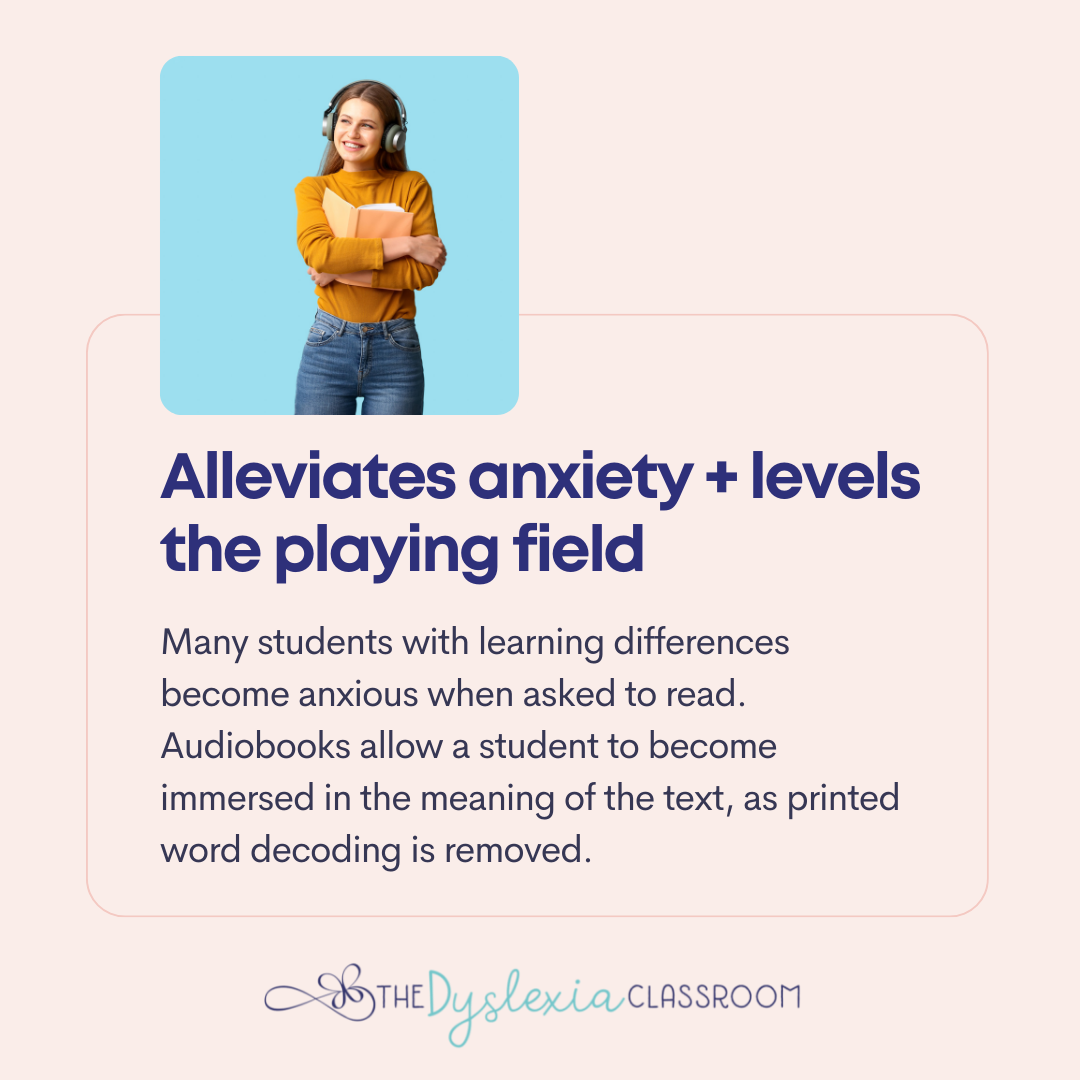
Audiobooks alleviate anxiety and embarrassment
Many students with learning differences become anxious when asked to read and discuss the reading. Audiobooks allow students to become immersed in the meaning of the text as printed word decoding is removed. Students can also have social conversations with peers about books read, empowering them to engage in literacy conversations or connect with references from books read that occur in movies, songs, and other writing pieces.
There are so many benefits for our students that audiobooks should be a part of their education plan and discussed and used within the school setting. Audiobooks are a great tool if you are looking for ways to support students in the classroom and beyond.
Source for statistics of audiobook sales
https://www.ibisworld.com/industry-statistics/market-size/audiobook-publishing-united-states/

This information is the intellectual property of @2016 The Dyslexia Classroom. Do not use or repurpose without expressed permission from The Dyslexia Classroom. Please give The Dyslexia Classroom an attribution if you use, reference, or quote/paraphrase copyrighted materials. This includes but is not limited to blogs, social media, and resources.



